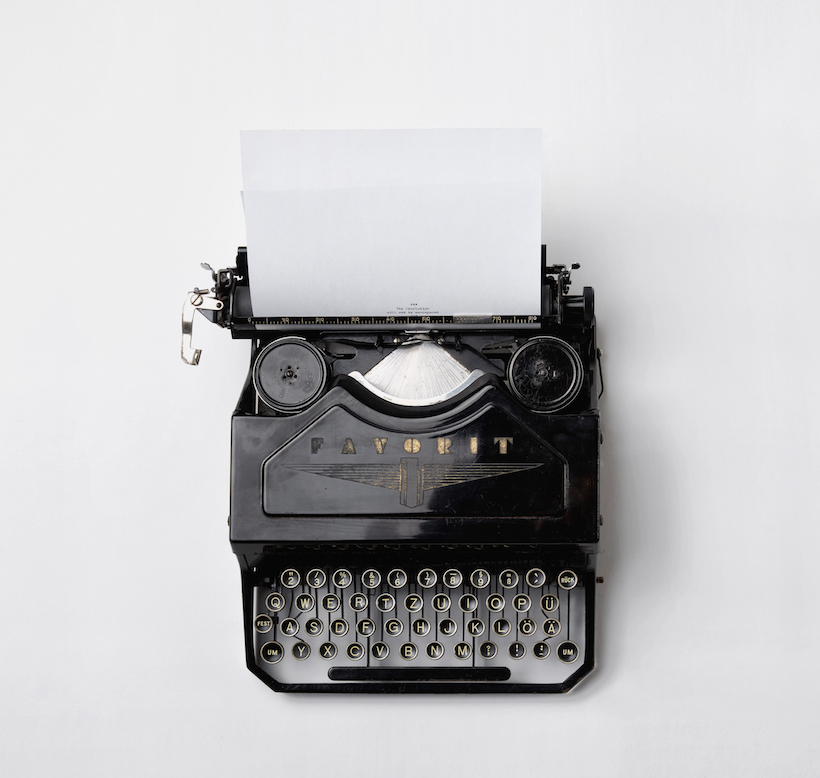Chelsea Harvey Garner: I Watched It Happen

Photo: Joanna C. Valente
Taking shots of Pepsi
over my mother’s dead body
I watched it happen.
All the color sank from her
as if it had always been borrowed.
Everything fell into place:
our positions in the room,
the toilet for when one of us needed
to puke. I found I knew how
to do it, that ritual of death.
An animal born able to purge.
For days beforehand,
they wouldn’t let us feed her.
Said she could choke.
A person whose signature we needed
was out of town or something.
She was never quite awake or asleep,
limp in her nightgown costume,
playing house like a kid.
Suddenly she could not speak.
Her stuttering became a going out first
into the water to demonstrate.
Even in dying, my mother
showing and telling the brain.
She loved sugary drinks:
white mocha smoothies, pepsi.
She hated coke but when I blind-tested
her once, she couldn’t tell the difference.
Why do we force people to justify
what brings them pleasure?
I wanted my interrogation to be
a protection of her body,
but she was always inside of it,
resisting me.
At some point, she developed gallstones.
Pebbles welled up and sank to the bottom
of her as if in a fishbowl.
When one passed, she would pull
over to the side of the road and wrestle
like roadkill with the pain.
It was the first time
I ever saw anyone be tortured.
Before surgery to have them
removed, they gave her anesthesia.
I followed the gurney
down the hall to the operating room.
She was laughing in a way
I didn’t know she could.
I realized I had never seen
anyone I loved look free.
Three days before dying, she reached
for a pen and scribbled FOOD
onto a notepad I would never
look at again.
When the veil is thin, being prepared
means pausing in the dark at 4am
to pack supplies you can throw away later.
Everything just gets so haunted.
We camped out on the
hospital cot taking shifts.
We were gentle with each other,
even those of us we hated
because we were too tired
to absorb a defense.
Our kindness was also a protection
of self, as the safest kindness is.
We paced and crawled from the windows
to the bed, distilling hope down to a silt.
We exhausted grief’s hunger
at the buffet of clean misery.
Her breath leapt outside her then
clawed at the door wanting back in.
Harsh as chalk tracing lines
on a bell curve, the sound of it
filled the room with the story
of what was happening.
Even then, it felt special,
like a holiday.
The hours were wrapped
in the white lights of urgency.
We languished our wilting and pawed at the electrified string.
Horror is as simple as significance
heavier than most days can hold.
Death is a wide conveyor,
a lucky chance to let backlogs
of meaning through.
When it was over, we took
shots of pepsi around her
dead body, shrugging at the
persistence of absurdity.
Her flesh was something else’s now.
We left so its new tenants
could fight over rooms.
We walked wordless
into the nebraska fall
where a sunrise cut us
from shock’s cold placenta.
Six months later,
I roast in my idling car.
Grief has finally made a spring of me.
Many tethers went slack and were cut.
When you have a mother,
there is a presence behind you.
Now I’m a stone out of pocket.
Freedom is no longer an issue.
Pain bears its spells of heat,
bringing flavors to the surface.
I bud like tomorrow,
a fork in the steak of being alive.
I drink seltzer and wonder
how the bubbles stay in there.
I see the ferocity necessary
to claim a helping of life.
Compassion is artillery
because survival is mutual.
Every day we are food for something
and every day we must feed on what dies.
We have to pick which bodies to favor;
there is no way not to choose sides.
I move through hallways of empty plates,
take my place at the front of the line.
I have made my decisions:
I’m going to eat until full.
I am going to know
how to die.
Chelsea Harvey Garner is a writer, trauma therapist, and the founder of Big Feels Lab: an organization empowering people to heal together. A recent fellow with the American Psychological Association, she studies the relationship between mental health and culture. Her writing has been featured in Omaha Magazine, Plainsongs Magazine, Okay Donkey Magazine, Cigar City Journal, Elephant Journal, Thought Catalog, and others. Follow her work on instagram at @theconnectionartist or at http://chelseaharveygarner.com/.






